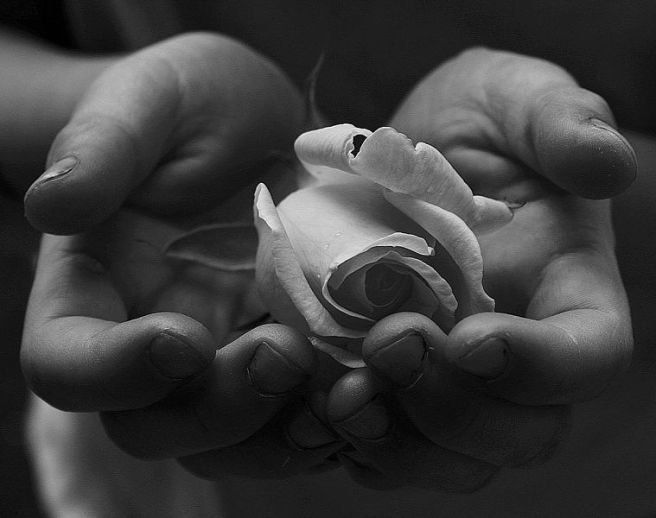
Second Memory
An upward draft
catches Mama’s hem
at Forty-first & Twelfth
raising it in waves
around her knees
over her thighs
a pink-striped dress
dances like the awning
at Lida’s Cantina
when a man at the corner
clutching a boy’s hand
sees Mama naked
under her flying skirt
& I see he sees
wondering why
she doesn’t
hold it down
& he sees
me see him
winking
before the light
turns green.
Queen’s Bird
Two of each—cup, saucer, bread plate—
in lukewarm water, I wash away
thirty years of dust since Mother died.
At 42, uterine cancer like Queen Mary
bloody Mary quite contrary.
Why did you run away?
I thought I could find you by traveling
to Chicago, Barbados and Edinburgh.
Against the sun, I raise this porcelain
eyeing it for chips and cracks. Bone china
fired from bone ash like Mother’s gray powder
handed me in a bronze urn.
Or is this songbird cup glazed in blue
mere clay? My lips where once were yours.
Jeopardy
My father built biceps working for US Steel
smelting iron in heat that humbled men.
Now I could break his arm
over my knee, brittle as kindling.
My father used to let me walk up his body
balancing my hands on his fingertips
till I flew from his shoulders. They began to sag
after my mother passed. Rising at night, no moon out,
she collapsed in the dark and never woke
as once my father fell when a clot in his head
tossed him down. He speaks of my mother
rubbing his back with eucalyptus oil and saves hair
from her brush, strands he wraps in kleenex.
At night with his whiskey, facing Jeopardy, my father
drifts off to Kargasok.
In the Russian mountains women live to be 105.
So do their men, eating dried cod with mushroom tea,
making love last forever.
Blackbirds
Like a canopy of darkness
they shadow the ground for miles
on currents that lift them
back to their roosts.
Years later I ask my father
if he gathered us
to watch thousands
swoop down on trees
sit wing to wing
till morning branches cracked
under their weight.
At daybreak
did they leave the oaks
bare?
He says we never saw them abandon
the hollow, catch a new wind
to an unharvested south
but often would see their return
black streaks
on a September afternoon.
Job’s Daughter
I do not skulk from God.
He has no eye for me
only for my father—tall and brown
hands that raise me over his head.
Hurling insults like thunderbolts, God calls
him harelip, mooncalf. Father hides
seven days under the bellies of three sheep.
With a dulled razor, God sheers
their backs slowly before burning them.
He forces the camel to sit on the cold earth,
head down, and gives father a white flint knife.
Slice the thorax, He bellows.
Father turns away—not a butcher.
The camel lives two hours. My father crawls
inside the camel’s skin and closes it over him.
Flesh still warm.

Chella Courington is a writer and teacher. With a Ph.D. in American and British Literature and an MFA in Poetry, she is the author of six poetry and three flash fiction chapbooks. Her poetry appears in numerous anthologies and journals including Spillway, Gargoyle, Pirene’s Fountain, and The Los Angeles Review. Originally from the Appalachian South, Courington lives in California with another writer and two cats. For more information: chellacourington.net.
Painting, Eugene Manet and his daughter in the Garden, by Berthe Morisot.


